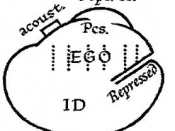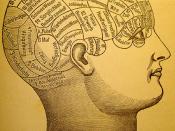Socialisation is an inevitable and crucial process which involves adapting to the behaviour patterns of an encompassing culture. Whether this is done consciously or unconsciously is subject to much controversy and debate. This essay will attempt to evaluate these ideas; it will show how socialisation occurs and the outcomes and implications of such. The human being is an intricate and complex entity, and from socialisation we are shown how this complexity is brought into being through mainly unconscious acquisition.
It is commonly known that the process of socialisation is most impressionable during the infant stage of life, even though we are constantly learning until we cease to exist. It is through both formal and informal methods that we are subject to socialisation, in which certain 'deals' are made between and society. The degree of consciousness varies depending on the context in which it is made.
Through socialisation children attain two broad 'knowledges'.
Firstly they learn the common practices and institutions of a society; such as language, dress, food tastes and the like. Secondly they acquire a world-view. The world-view includes perceptions, morals, values and beliefs that are attained and utilised in interaction with others. These are adopted from the parent and/or socialisation agent both consciously and unconsciously.
Because upon birth an infant is 'pure' and inexperienced as a human, they are subsequently not equals in the interaction process.
"Infants are attracted to the physical and behavioural characteristics
of people...adult behaviour provides a model for infant activities...
these relationships in turn facilitate the acquisition of social skills
necessary for interaction, and help to develop a culturally based perception in infants of salient aspects of their environment." (D.Messer and G.Collis)
Therefore the development of people can be understood in a context which begins with the family and extends to the society in...


